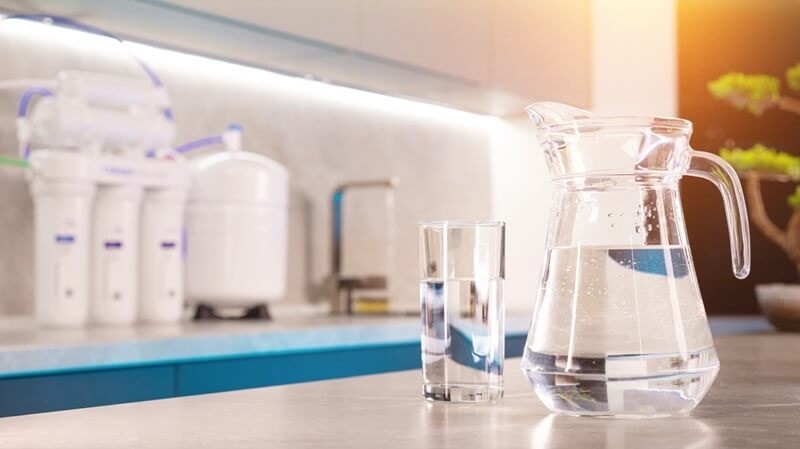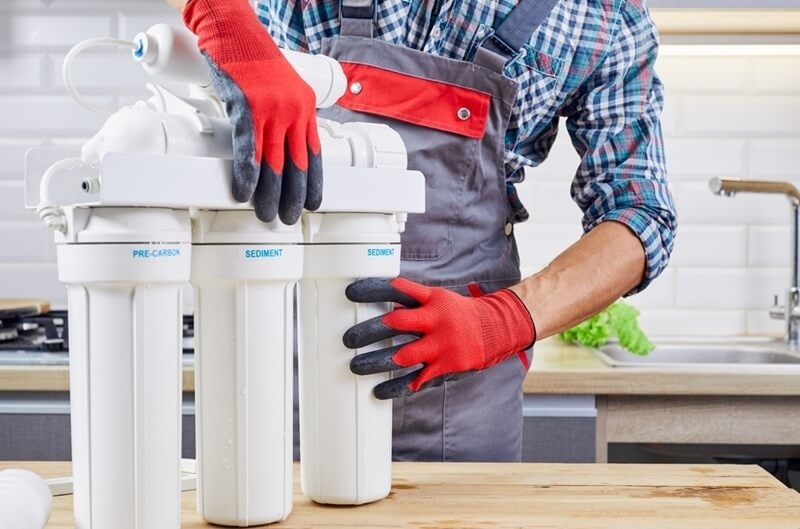
Ever stared at a shelf full of bottled water in the grocery store and felt a pang of guilt? Or maybe just exasperation at the never-ending expense? You’re not alone. We’ve been conditioned to think that clean water comes in a plastic bottle, but honestly, it’s a setup. A big, wasteful, expensive setup. The truth is, there’s a much smarter way to hydrate, protect your health, and even help out the planet: by investing in a quality water filter.
This isn't some niche eco-activist rant. This is about making a genuinely smart move for your home and your wallet. It’s all about reclaiming control away from poorly considered municipal setups and the plastic empires profiting off your thirst. Let's bump through the marketing jargon and get real about how a good water filtration system is now more a necessity than a luxury.
You expect that tap to pour out a nice refreshing drink. All you get is a journey. What you’re actually getting is a journey. A journey where water picks up all sorts of hitchhikers: chlorine, which gives it that distinct pool smell; lead from aging pipes; agricultural runoff; industrial waste; and even traces of pharmaceuticals. Your city’s water treatment does a commendable job, no doubt, but it’s like a bouncer at a club letting in the VIPs and missing a few sneak-ins.
That’s where your trusty water filter steps in. Think of it as your personal bodyguard for every sip. It's not just making water safe – the city does that much – it's making it pure. It’s about elevating your basic necessity into something truly clean and delicious. It’s about stopping those unwanted elements from reaching your glass, your body, and even your shower.
Don’t Miss: Top 10 Reasons to Use Distilled Water and a Trusted Machine

So, how does this magic happen? It’s not magic, it’s science, and it’s surprisingly straightforward. Forget boiling; that kills bacteria but leaves all the nasty chemicals and heavy metals chilling in your pot. A proper water filter system employs a range of clever tricks to separate the good from the bad.
Most commonly, you’ll hear about activated carbon filters. Imagine carbon but super porous, like a sponge riddled with almost a trillion tiny tunnels. Water flows through these tunnels; all contaminants get trapped there, almost like these tunnels stand as microscopic magnets attracting chlorine, pesticides, and other organic stuff from the water. This is why water suddenly tastes so wonderful-a smell and taste totally unlike water.
Here comes the heavyweight: Reverse osmosis (RO). This one uses pressure to force water through a super-fine membrane. It’s so fine, only the pure water molecules can squeeze through, leaving behind almost everything else—heavy metals, nitrates, even fluoride. The only catch? Traditional RO systems can be a bit thirsty, producing some wastewater, which is something the eco-conscious among us definitely keep in mind.
Alright, so you’re sold on the "why." Now for the "how." The world of types of water filters can seem like a labyrinth, but it boils down to what you need and where you need it.
These are your targeted solutions, cleaning water right where you use it.
Discover More: Automatic vs Manual Distilled Water Machines: Which to Buy?
If you’re thinking bigger, thinking total coverage, then a whole-house water filter system is your play. This is where the main water line enters your home, meaning every single drop – from your morning coffee to your evening shower to your laundry – is pristine.
Typical whole house water filter setups have a few processes:
Basically, filtering water to drink is just one provision; a good water filter system really brings a whole caravan of other benefits to you.
Explore more: Water Purification in Laboratories: Systems and Solutions
Here’s where a water filter truly shines as a hero for our planet. Ditching bottled water is a massive win for reducing plastic waste. But we can push it further. A truly sustainable water filter is one that considers its own footprint, too.
So, there you have it. Choosing a water filter isn’t just about quenching your thirst; it’s about making a conscious decision for your health, your home, and the world we live in. It's a simple change, but its ripples extend far beyond your glass. Whole-house
This content was created by AI